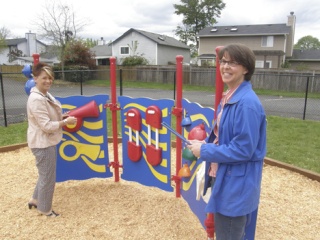ACAP Child and Family Services needs help.
United Way has informed ACAP’s administration and its board of directors that as of July 1, the agency would no longer receive $150,000 in grant funding, an action that punches a hole in its $600,000 annual budget ACAP cannot afford.
United Way’s explanation – ACAP’s grant application was poorly written.
Executive Director Largo Wales and everybody at ACAP knows what is needed to put the agency on a firm financial footing: raise the number of children ACAP can serve at its new location at White River Presbyterian Church from 45 to 105.
State and local authorities, finding that the lack of a fire suppression system and outmoded bathrooms made it unfit for more to occupy, capped the number at 45 as a condition of its reopening in the building Jan. 5 after the move last year from the Les Gove campus.
To get to 105, ACAP will need the sprinkler system and to bring five bathrooms up to code, which will cost about $92,000.
Board president Martha Hoss said in the last year that ACAP has undergone a root-to-tip reorganization that involved not only the building relocation and the hiring of Wales to replace former director Deanna Briese, but getting back to its roots of childcare and focus on early childhood education.
ACAP has also dealt with a number of financial problems, including the building updates to make its new home fit for occupation.
Wales said until the grim news from United Way reached her, she and everybody else thought ACAP had weathered the worst of the storms.
“The kicker is we’ve got volunteer help for the overhead sprinkler system, we’re probably going to get the Boeing Corporation to help us with the bathrooms, we’ve got Washington Energy Power helping us with the windows, we’ve got our budget under control,” Wale said. “We’re finally in the posture of actually having paid all our debts, we have a little bit in the capital fund, then United Way notifies us of this.”
It was, Wales said, a major setback.
“I think the board for almost a year now has dealt aggressively with the issue of where ACAP is at financially,” Wales said. “And in addition to dealing with our finances, they dealt with relocating us, and it’s hard to separate the two. Because of all the city codes and fire marshall codes and DSHS codes, we had to take the building we started out in 1969 and bring it up to meet the codes since we were getting a new license.
“That has set us back, so that now we are capped at 45 kids, as opposed to about 80 before. Now, the beauty of having moved here is that once we get all the necessary renovations done, we have the capacity to serve 105 kids. Once we are at that level, there will be enough to really fund some of the administrative pieces that it takes to make these classrooms work. We’ll be in far better stead when we’re at 105 kids,” Wales said.
Hoss said ACAP needs help.
“The biggest thing we need is continued financial support and any resource information or funding funding opportunities people can provide. We also need to continue to get the word out that ACAP is a viable, needed agency. The more we get the word out, the more kids will come,” said Hoss.



